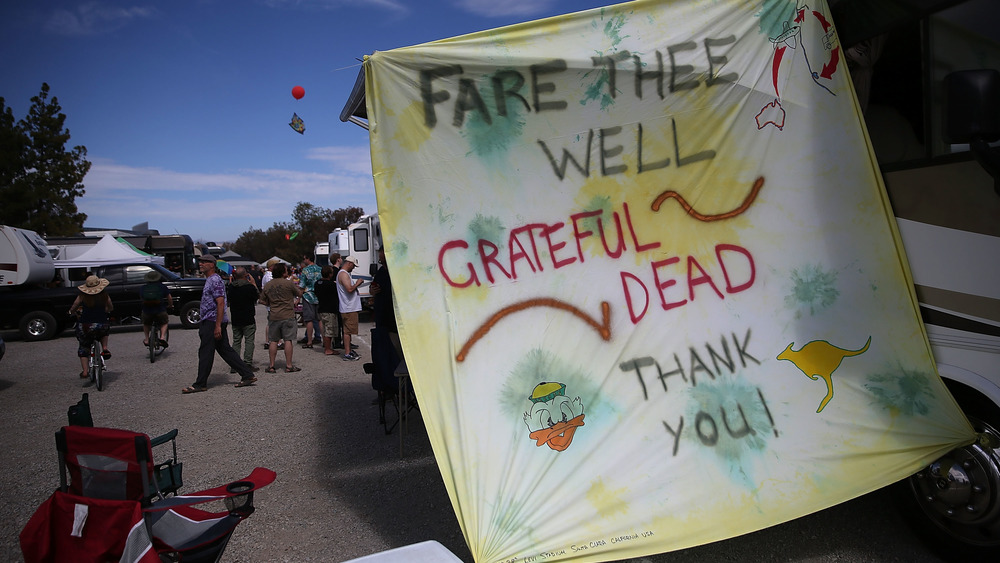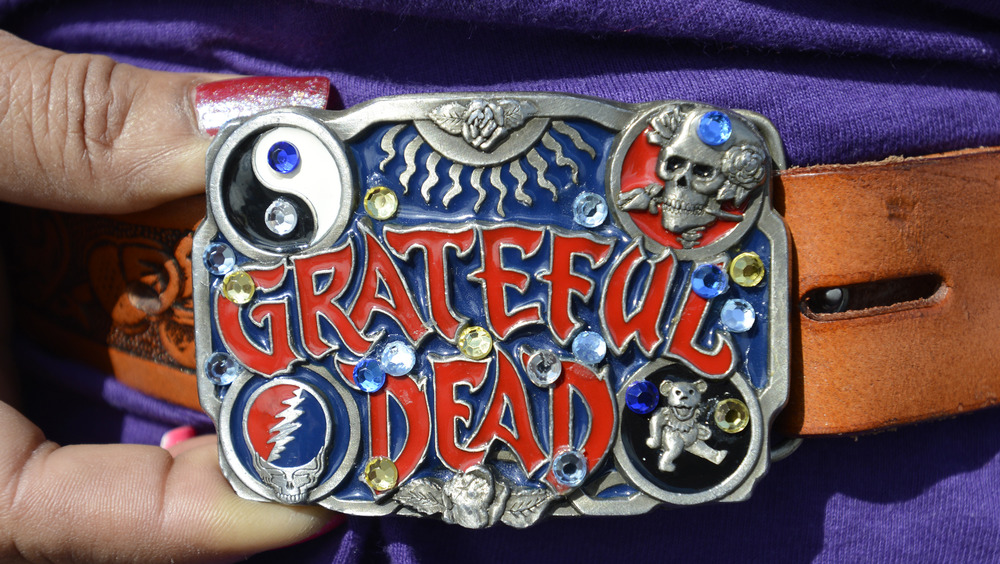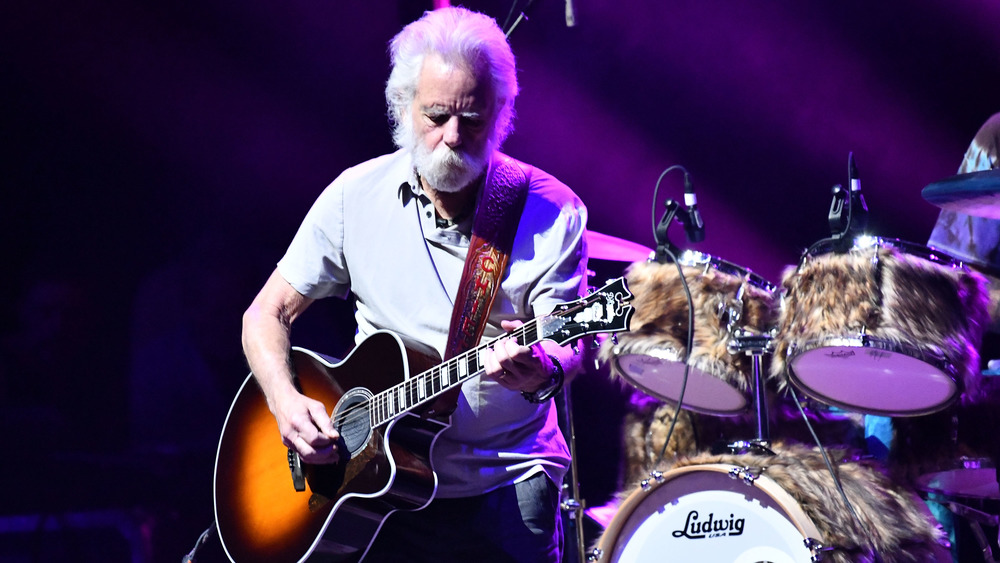Why The Grateful Dead Got Criticized During Their Final Concerts
In 2015, the surviving members of the legendary '60s psychedelic group and countercultural stalwarts The Grateful Dead announced to the world that they would put on a series of concerts that would be their very last. "Fare Thee Well: Celebrating 50 Years of the Grateful Dead," the concerts would bring together founding members Bob Weir and Phil Lesh with longtime Grateful Dead drummers Bill Kreutzmann and Mickey Hart, as well as numerous other musicians who have worked with the Dead in their various incarnations since the passing of iconic frontman and band spokesman Jerry Garcia in 1995.
There was no doubt about the significance of these concerts from the moment they were announced. Originally intended to be a series of three nights at Chicago's Soldier Field, huge public interest led to "Fare Thee Well" being expanded to five nights in total, with two new "warm-up" concerts added at Santa Clara's Levi Stadium. Those who bought a concert program found that the enthusiasm for the event had even spread to the White House, with a message from President Barack Obama claiming The Grateful Dead "embodies the creativity, passion, and ability to bring people together that makes American music so great," according to Billboard.
But these concerts also attracted a great deal of criticism, beginning even with the name of the band. Without Jerry Garcia and other key past members, was this really The Grateful Dead?
'The Grateful Dead': a (very) hot ticket
One of the first controversies to arise following the announcement of "Fare Thee Well" was the name under which these concerts were apparently being performed. Following the death of Garcia in 1995, the surviving members had made a point of retiring the name The Grateful Dead in their band mate's honor, according to CNN, with the group performing under names such as The Other Ones in the years after, until deciding in 2003 to gesture towards their original band name and bill themselves as The Dead.
Though many media outlets referred to Fare The Well as the final reunion of The Grateful Dead, some fans pointed out that neither the band members nor the physical tickets themselves referred to the band as The Grateful Dead, but rather that the concerts were a "celebration of the band's music." It was suggested by some that the group of musicians performing during Fare Thee Well didn't have a collective name at all.
But regardless of whether it was technically The Grateful Dead playing, the name across the marketing campaigns for the shows soon turned Fare Thee Well into one of the hottest tickets around. For regular long-term fans, however, the interest was a disaster. Tickets were originally priced at between $60 and $200, but despite a ticket lottery that was intended to limit scalping, prices went up to a minimum of $1,435, with one particularly greedy ticket holder offering a front row spot for $116,000.
A $50,000 rainbow and a short goodbye
The concerts were generally very well received. Pitchfork described the "scraggly glory" of the shows, of how movingly and convincingly the "Core Four" surviving members treated their legacy, and how the music, half a century after the band's creation, seemed to have overcome many of the cultural barriers and boundaries of fashion that once segregated the music of The Dead from those who followed the ethos of punk or DIY music.
The price of tickets meant that certain unexpected anxieties reared their heads in the days following Fare Thee Well. The first concert of the series, of example, generated some unusual press attention when it was reported that a rainbow which had fittingly and almost miraculously appeared over the stadium right at the show's finale may have been generated artificially, according to Consequence of Sound. Interesting, perhaps, but what made the apparent special effect hit the headlines was that it had reportedly cost $50,000, which for many seemed an unnecessary price to pass on to the fans who were already paying exorbitant rates for tickets.
As Rolling Stone reported, these five concerts turned out to be some of the most lucrative in history, generating more than $50 million. Much of the interest came from fans who truly believed this would be their last chance to see their heroes. So who could blame them for feeling a little put out that, just months later, Weir (pictured) et al continued touring as "Dead & Company"?


